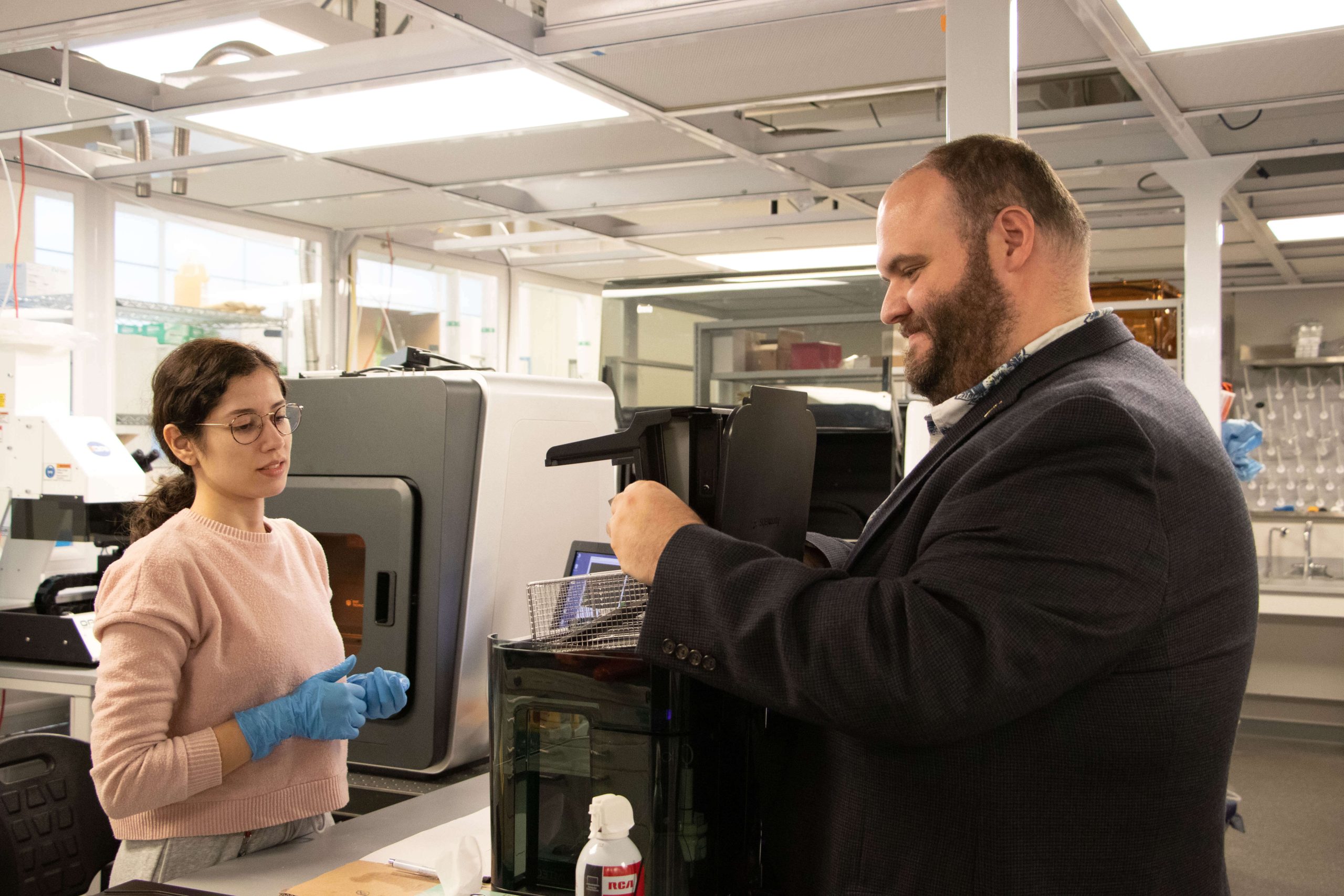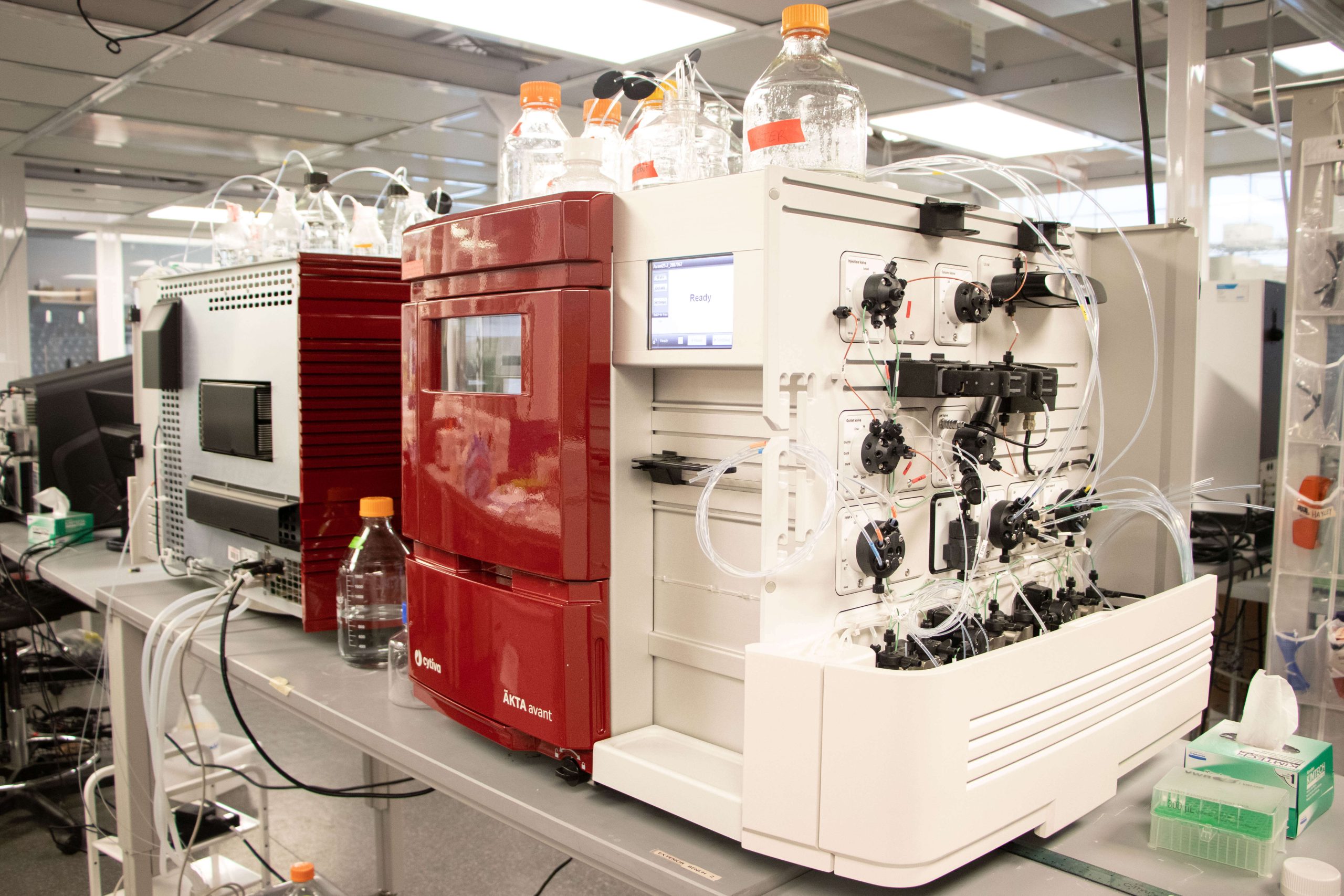written by Kathleen Clardy for Joint BME Communications
This summer, a new research lab that focuses on developing and advancing viral vector technology was opened on NC State’s Centennial Campus. The Viral Vector Initiative in Research and Learning (NC-VVIRAL) lab is a collaborative effort between the Joint Department of Biomedical Engineering and NC State’s Departments of Electrical and Computer Engineering and Chemical and Biomolecular Engineering. The new lab will provide both researchers and industry with an affordable and accessible space to create viral vectors.
Leading the research within the lab are Michael Daniele, associate professor in Joint BME, and Stefano Menegatti, associate professor in chemical and biomedical engineering. Together, they will guide and train engineering students across multiple engineering disciplines to help advance the mission of their laboratory.
 Viral vectors are viruses that have been modified to deliver genetic material into cells for treatment or research. Because viruses already naturally know how to deliver their genomes into cells they want to infect, scientists like Daniele and Menegatti can use nonpathogenic viruses as a vehicle to introduce what they need directly into a cell. According to Menegatti, the challenge with viral vectors is that “there is no established way of manufacturing vectors because they are so diverse and so complex.” However, NC-VVIRAL aims to meet that challenge by providing an accessible space where scientists and commercial partners can access all materials required to create viral vectors specific to their needs. “The gap of knowledge can be collaboratively filled, and I think we have accumulated here the critical mass of instruments and cross-disciplinary expertise to really help the industry accelerate. This is really an intriguing field of research to be in,” said Menegatti.
Viral vectors are viruses that have been modified to deliver genetic material into cells for treatment or research. Because viruses already naturally know how to deliver their genomes into cells they want to infect, scientists like Daniele and Menegatti can use nonpathogenic viruses as a vehicle to introduce what they need directly into a cell. According to Menegatti, the challenge with viral vectors is that “there is no established way of manufacturing vectors because they are so diverse and so complex.” However, NC-VVIRAL aims to meet that challenge by providing an accessible space where scientists and commercial partners can access all materials required to create viral vectors specific to their needs. “The gap of knowledge can be collaboratively filled, and I think we have accumulated here the critical mass of instruments and cross-disciplinary expertise to really help the industry accelerate. This is really an intriguing field of research to be in,” said Menegatti.
Daniele, who specializes in research relating to wearable and implantable biosensors, organ-on-a-chip models and human-machine interfaces, explained how NC-VVIRAL is uniquely positioned to meet a growing demand in research: “The first immediate need that this fulfills in the industry is the ability to learn and develop technologies to transition new biotherapeutics like viral vectors into a commercially viable product.”
In addition to providing an accessible way to develop viral vectors, this laboratory also provides learning and growth opportunities to future scientists in North Carolina. “We have a vision to use this laboratory as a test bed for training. We’re also partnering with other universities and community colleges around the area to train the next generation of scientists to enter the workforce in North Carolina,” Daniele stated.
Daniele emphasized the collaborative focus of NC-VVIRAL as an “opportunity to explore new manufacturing capabilities that we didn’t have previously, but also train our students in the most cutting-edge of manufacturing technologies, bioprocess technologies and even cell and biomolecular analytic tools all in the same place.”
“This truly embodies the multi-disciplinary character of NC-VVIRAL. The students working in NC-VVIRAL research bring in such a wealth of different perspectives, backgrounds and skillsets. We are open to consulting and collaborating with the industries. We are open for business,” said Menegatti.



